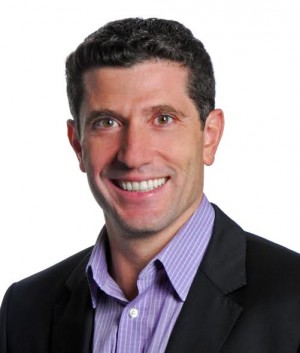Earlier this month, I visited the Supreme Court.
I learned a lot there: about the state of the law; that there is a Chief Justice, plus 13 Justices (one of whom is purely an administrative justice, and not involved in adjudicating cases); that they serve six-year terms; and that each Justice faces mandatory retirement at the age of 70.

Chrometa: Turning Time Into Billable Value For Modern Lawyers
Adoption of Chrometa represents more than a technological upgrade; it reflects a professional philosophy that values accuracy, transparency, and efficiency.
No, I haven’t entered a parallel universe—I had the great honor of being a guest of the Supreme Court in Seoul, South Korea, to attend the country’s International Judicial Symposium.
The event, held annually, brings in a small group of speakers from around the world to share their perspectives with symposium attendees: high-ranking government officials, judges, and other participants in South Korea’s legal profession. The keynote speaker this year was Klaus Schwab, founder of the World Economic Forum, and the theme of the symposium was Schwab’s idea that the world is on the verge of a “fourth industrial revolution.”
I was flattered at the invitation, and thrilled to visit Seoul, the most wired city in the world. The delegation got to visit a number of Seoul’s museums, gained entrance to a few of its exclusive restaurants, and was chauffeured around town in style. It was a once-in-a-lifetime experience—and, at the same, an experience that I am determined to repeat as much as I possibly can.
Let me explain.

The Trump Gold Card: A New $1 Million Pathway To A U.S. Green Card
A new proposal would let wealthy foreign nationals secure an opportunity for a U.S. green card with a $1 million 'gift' to the government, sparking legal and ethical debate.
The law can be a provincial profession. Going to law school, they say, is like “learning a new language.” It can be tempting for lawyers to believe that no one can understand our world quite like fellow lawyers fluent in the tongue. And generally speaking (with apologies to those who buck this trend), many of us don’t often look beyond American shores for insight. The legal system we know stops at our border, after all.
It struck me, then, how dramatically South Korea’s symposium broke with this provincialism. The organizers saw great value in hearing from both types of “others.” They invited many non-lawyers—including Oren Etzioni, a leader on the subject of artificial intelligence, and Gray Scott, a futurist and “techno-philosopher.” And all of the speakers, like myself, came from foreign lands.
On the four-day trip, I was forced to break from my daily routine and, like the symposium attendees, interact with those outside my professional and geographical bubbles. I was reminded just how refreshing and mind-expanding an experience that can be. Like a city dweller returning from a revitalizing hike in the woods, I’m determined to do it more often. It reminded me that for all of us in and around the legal industry, exposing ourselves to diverse perspectives—those held by people in different professions, countries, and circumstances—expands our sense of what’s possible for ourselves and our businesses.
As an employee of Bloomberg BNA, I should know that lesson well. One of the reasons for our success with Bloomberg Law is the fact that it benefits from the non-legal perspective of Michael Bloomberg, who brings a business- and finance-oriented mindset to everything he touches, and from the engineers, product managers, data scientists and other technical experts who make the magic we call “Legal Products.”
I’m also a realist, and know that when you’re trying to hit 2,300 hours, or push out the latest product, it isn’t so easy to stop, pick your head up, and see how they’re doing things an ocean away.
But I’m writing this because it’s worth trying. In Seoul, I saw a Dutch system for divorce proceedings that operated something like tax software in the United States in its user-friendliness, question-based format, and lack of emotion. I also spent time with Alma Asay, the founder and CEO of Allegory Law, a service that automates everyday litigation tasks. Asay built her company by looking at the litigation process from a neglected perspective: that of an associate. As a former corporate lawyer and former in-house counsel who spends much of his time speaking with law firm partners, I have a blind spot for the litigator’s perspective, especially the young litigator.
Finally, I spoke extensively with Fred Lederer, a professor at William & Mary Law School, and someone I would never think to question about my own field of legal technology. And yet, he has developed the most electronically advanced courtroom in the country, one that reflects deep thinking about how to make courtrooms unbiased toward citizens with special and different needs. He regularly consults on the development of modern courtrooms in the United States. His perspective on technology broadly, and its application to the law specifically, was new for me, and eye opening.
Learning from my conference hosts, I saw an opportunity to broaden the horizons of my team members and proposed that we visit Professor Lederer on campus. He did me one better. Our visit was fine with him, he said, as long as we in turn would agree to present to his students. I don’t know what each group will learn yet, but I know that we’ll all benefit from the experience.
On our return, we might feel like we’ve just been to Seoul—or at least enjoyed a nice hike.

David Perla
David Perla is the President of Bloomberg Law and Bloomberg BNA’s Legal division. Perla plays a key leadership role in the continued growth of the company’s legal business, which includes legal, legislative, and regulatory news analysis and the flagship Bloomberg Law technology platform. You can reach David at [email protected] and follow him on Twitter at @davidperla.
